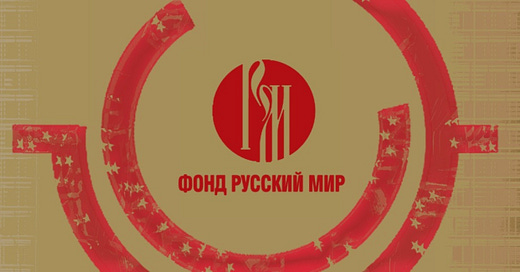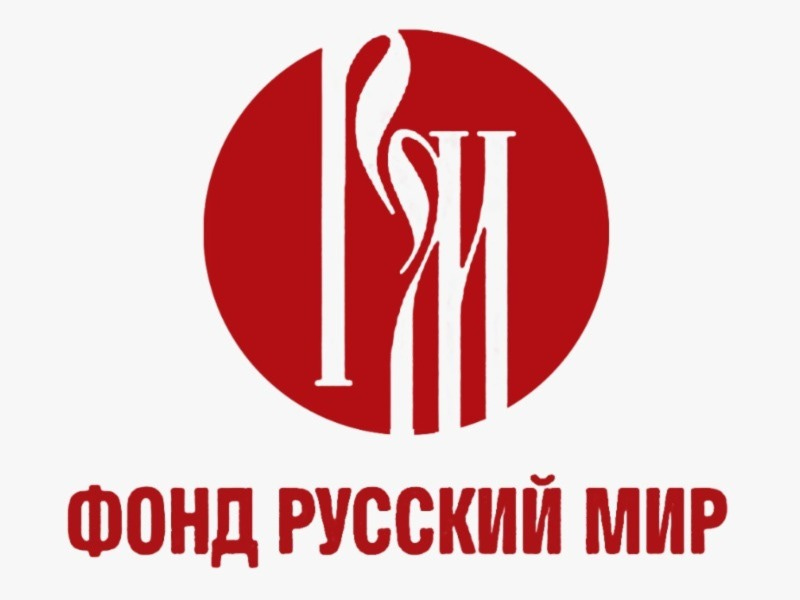The third sector is a central pillar of European democracy. The voices of third sector representatives (NGOs, foundations, and educational institutions) are considered by government officials when justifying policy positions and determining how resources and political capital are spent. Europe’s third sector faces a severe crisis of credibility, due to the corruption of NGOs by oligarchic and kleptocratic wealth as well as by networks of illicit or malign finance or influence.
The NGO Watchlist identifies suspicious NGOs and investigates their funders and links to government influence. The criteria for being watchlisted is having deep involvement with or funding from an individual or entity that has been sanctioned or criminally prosecuted (Russia-invoked sanctions are excluded). Additionally, a separate category of watchlisted NGOs includes those with strong links to individuals with criminal allegations leveled by a European, EU, US, or UK government authority.
The Latest Institute for European Integrity Investigation
Check out our other investigations at https://www.iei.ngo/ngo-watchlist
NGO WATCHLIST
By IEI
Last updated: 31/03/2023
RUSSKIY MIR FOUNDATION
Founded: 2007
Location: Moscow, Russia
Address 1: 117218, Russian Federation, Moscow, Ulitsa Krzhizhanovskogo 13k2
Mission Statement
“The three meanings of this small but eloquent word inspire and define Russkiy Mir’s mission – to promote understanding and peace in the world by supporting, enhancing and encouraging the appreciation of Russian language, heritage and culture.”
The Russkiy Mir Foundation was established in June 2007 by decree of Russian President Vladimir Putin for the purpose of “promoting the Russian language, as Russia’s national heritage and a significant aspect of Russian and world culture, and supporting Russian language teaching programs abroad.” The foundation is jointly overseen by the Ministry of Foreign Affairs and the Ministry of Education and Science.
Since founding Russkiy Mir, Mr. Putin has been sanctioned by multiple western governments, with a recent warrant issued for his arrest by the International Criminal Court for his systematic kidnapping of Ukrainian children that envisages an Orwellian-style reeducation constituting war crimes.
The Russkiy Mir Foundation’s profile contains the following elements: 1: senior leaders that have been sanctioned; 2: the foundation itself has been sanctioned by multiple governments for its activities; and 3: Russian government sponsorship and financing.
Three members of Russkiy Mir’s leadership and supervisory board raise concerns: Vyacheslav Alekseyevich Nikonov, Dmitry Kosak and Sergey Lavrov.
Acting as the head of the foundation, Vyacheslav Nikonov has been sanctioned by The U.S. Treasury Department and several other countries. Mr. Nikonov serves on the Duma and is its First Deputy Chairman of the Committee on International Affairs. In October 2022, the University of Edinburgh stripped Mr. Nikonov of an honorary degree, likely because of his inclusion on sanctions lists. Russkiy Mir had previously given the university nearly £250,000 to fund a “Princess Dashkova Center.”
Deputy leader of Putin’s Presidential Administration, Dmitry Kozak, chairs the foundation’s supervisory board and has been sanctioned since 2014. Following Gennady Petrov's arrest in Spain in 2008, Spanish authorities presented evidence in an indictment that Petrov — considered a leader of the Tambov mafia — had regular contact with numerous high-level Kremlin officials and oligarchs, including Mr. Kozak. Igor Maslov, Putin’s advisor for “cultural contacts with foreign countries,” is on this board as well. In April 2022, the EU added him to its sanctions list and noted he “is a long-term Russian Presidential Administration official with a Russian Foreign Intelligence Service (SVR) background.” Maslov is responsible for Kremlin activities in Russia’s “near abroad” and a 2020 report detailed his meddling in Moldovan politics. Aleksey Filatov, also on the board and head of Putin’s “cross border cooperation” department, is on the April 2022 EU sanctions list.
Also sanctioned and serving on the board is Sergey Lavrov, Minister of Foreign Affairs. Mr. Lavrov’s involvement makes sense given the foundation’s mission and connections with other funds and entities the Kremlin uses to spread its influence across Europe. The foundation is a joint project of the Ministry of Foreign Affairs and the Ministry of Education and Science.
A 2016 resolution of the European Parliament acknowledged the foundation as a flexible propaganda instrument of the Kremlin. By July 2022, the EU had sanctioned the foundation, citing its role as “an important influence tool by the Kremlin that is strongly promoting a Russia centric-agenda in the post-USSR states, rejecting Ukraine's legitimacy as a sovereign nation, and advocating for its unification with Russia.”
Fittingly, a woman named as a “Face of Russian Propaganda” appears on another of the foundation’s boards. Margarita Simonyan, the Editor-in-Chief of the state sponsored outlet Russia Today, which is banned from airing in the EU, serves on one of the foundation’s boards. The U.K., Canada, and EU have sanctioned her. Natalia Narochnitskaya also serves on the board with Simonyan and is the president of the IEI-watchlisted Institute of Democracy and Cooperation in Paris. Ms. Narochnitskaya is a former Soviet diplomat, now an erstwhile Rodina member turned prominent far-right figure.
The foundation’s activities work in concert with other well-known propaganda vehicles (e.g. Rossotrudnichestvo) known to disseminate anti-EU sentiments within the bloc, as well as Russian historical revisionism that includes anti-Ukrainian propaganda, which has resulted in the Russkiy Mir Foundation being sanctioned by the EU, Canada, Switzerland, and Ukraine. The Russian government, through the Russkiy Mir Foundation, supports its soft power objectives abroad in a manifold of ways, but there exist two notable examples: 1: embedding itself within EU member states as well as universities and 2: cooperating with the Russian Orthodox Church.
By 2018 the foundation was operating approximately 40 centers of Russian culture in EU member states, including 27 centers at EU universities. Centers haven been opened at, but not limited to, universities in the following countries: The United Kingdom, Belgium, Poland, Czech Republic, Latvia, Austria, Romania, Italy, and Hungary.
The foundation also keeps close ties to the Russian Orthodox Church, which has been used in the past to achieve the Kremlin’s soft power objectives. The church’s current leader, Patriarch Kirill, also spoke about “the Russian world,” and influenced Putin to advocate for the idea. Kirill, like Putin, grew up in Leningrad and may have served the KGB. A church expert noted Kirill became close to Putin in 2012 and turned the church into the Kremlin’s “Ministry of Ideology.” The U.K. and Canadian governments have sanctioned Kirill. However Hungary, given its close relations to the Kremlin, has blocked EU sanctions against Kirill.
Government-organized NGOs (GONGOs) are civil society or third sector organizations i.e. (NGO) founded on the initiative of a country’s leadership. While GONGOs can serve positive roles, such as the National Endowment for Democracy (NED), these entities tend to hew towards problematic as power becomes concentrated in the hands of a select few that support kleptocratic or authoritarian systems. The total collective of such entities can create a sprawling web-like network or architecture that on the one hand functions as a democratic simulacrum while on the other hand promoting, often through faux grass roots movements, its warped domestic and foreign policy interests; these entities essentially mask or camouflage what is in reality a one-party state.
The Russkiy Mir foundation is primarily supported by the Russian Government, which according to numerous scholars (such as Dr. Karen Dawisha) is a kleptocratic enterprise. In leaked diplomatic cables, then-special-Spanish prosecutor Jose “Pepe” Grinda Gonzalez, head of the organized crime and corruption unit, characterized modern-day Russia as a virtual “mafia state”. Thus, the summary of evidence qualifies and warrants the foundation as a high-risk GONGO.
Nonprofit organizations, directly or indirectly, associated with the laundering of money, reputations, narratives or criminal activities morally corrode the nonprofit space. Moreover, any third sector or civil society organization (NGO) engaged in such practices can serve as a vector for undermining western institutions and values as well as transatlantic relationships. Open-source information indicates Russkiy Mir Foundation’s senior leadership and its direct as well as indirect activities warrant the designation of this foundation as a “high-risk NGO”. Therefore, Russkiy Mir Foundation has been placed onto the Institute for European Integrity’s NGO Watchlist.
"IEI is on the lookout for NGOs that threaten the integrity of the third sector. If you have a tip or information on NGO’s in Europe drop us a line at ieiwhistleblower@proton.me"






